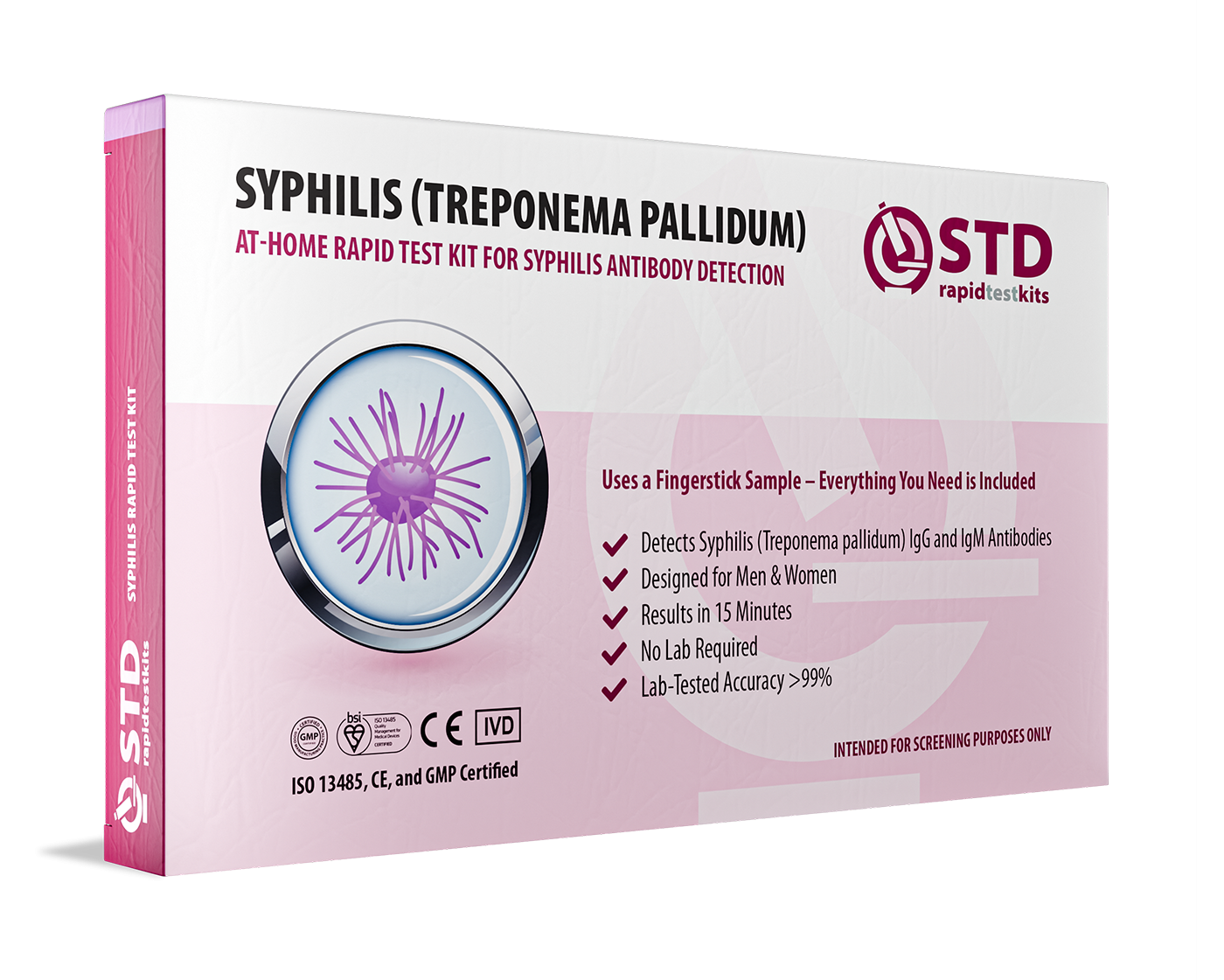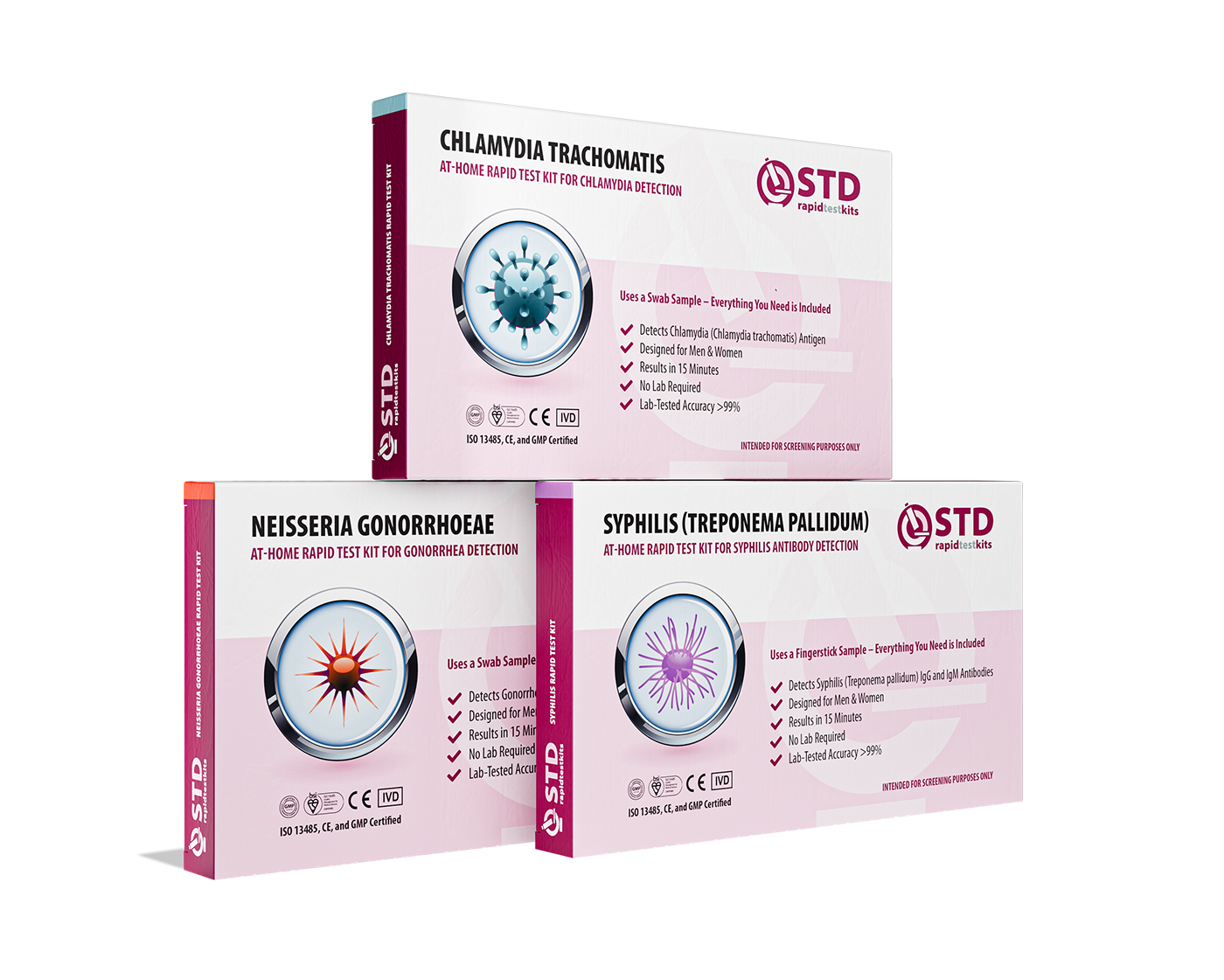Quick Answer: Yes, you can get syphilis without sex. While sexual contact is the most common route, syphilis can also spread through skin-to-skin contact with sores, kissing, sharing needles or razors, and during pregnancy from mother to baby. Alabama’s surge in cases is fueled by missed testing and untreated infections, not just unprotected sex.
Can You Really Get Syphilis Without Sex?
Most of us grow up believing that STDs are strictly about sex. The word is baked right into the acronym. But syphilis doesn’t always wait for penetration. The bacteria Treponema pallidum spreads wherever there’s direct contact with a sore or rash, whether that’s during oral sex, genital touching, or even kissing if a mouth sore is present. A passionate make-out session can, in rare cases, carry risk. So can using the same needle as someone who has an active infection. And in one of the most tragic realities, a mother can pass syphilis to her baby during pregnancy or birth, leading to what doctors call congenital syphilis.
These non-sexual routes don’t account for the majority of infections, but they matter deeply for public health. In Alabama, where congenital syphilis cases have risen by more than 900% in a decade, the message is clear: focusing only on sex leaves too many blind spots. When people think, “I’m not having sex, so I don’t need to test,” infections spread quietly, and babies are born into lifelong complications that could have been prevented with a single blood test.

People are also reading: Why Men Should Worry About HPV.
Why Alabama, and Why Now?
It’s tempting to think outbreaks happen because people are being “reckless,” but the reality in Alabama is much messier, and far more human. Data from the Alabama Reflector shows congenital syphilis cases climbed from just 4 in 2012 to 42 in 2022, a tenfold increase. And while national rates are climbing, Alabama’s numbers are rising faster than the U.S. average. Behind each statistic is a mother who was either never tested, or tested too late. Many of these women did attend prenatal appointments, but gaps in screening meant infections slipped through the cracks.
Dr. Lawson, a Montgomery OB-GYN, explains:
“Most of my patients aren’t careless, they’re underinsured, they’re scared, or they don’t realize that even if they haven’t had sex recently, they could still carry syphilis. The system fails them.”
Alabama’s underfunded public health infrastructure, combined with stigma around STDs, creates the perfect storm. Clinics are closing, rural counties lack specialists, and conversations about sexual health often stop at abstinence. Meanwhile, syphilis spreads silently.
This Isn’t Just About Sex: Busting the Myths
One of the biggest barriers to testing is the myth that “no sex = no risk.” But as research from the Journal of Infectious Diseases confirms, syphilis has multiple transmission routes. Yes, sex is the main one. But non-sexual transmission, though less common, does happen. Healthcare workers have been infected through accidental needle sticks. Children have been born with it after their mothers were untreated during pregnancy. And intimacy that doesn’t involve penetration can still expose you to sores if they’re present on the skin or mouth.
For someone like Marissa, the shock isn’t just the rash, it’s the realization that what she thought was “low-risk” intimacy could still leave her vulnerable. “I kept thinking, I didn’t even have sex, so how is this possible?” she says. That disbelief is exactly why testing matters. When people don’t think they’re at risk, they don’t test. And when they don’t test, syphilis keeps moving silently through communities.
When Silence Is a Symptom Too
The cruel thing about syphilis is how quiet it can be. In its earliest stage, a small sore, called a chancre, appears at the site of infection. It might be on the genitals, inside the mouth, or tucked in a spot you never think to check. The sore is usually painless, which means people miss it. Then, as weeks pass, the bacteria spreads through the blood. Suddenly there’s a rash on the palms or soles, maybe a fever or sore throat. But these second-stage symptoms mimic everyday illnesses, so they’re easy to brush off as allergies, the flu, or just stress.
That silence is deadly. Without treatment, syphilis hides in the body for years, slowly damaging the brain, heart, and nerves. Some people never see another outward sign until they’re already in the late stages. Others only discover it when they’re tested during a routine screening, or after passing it unknowingly to a partner or child.
Check Your STD Status in Minutes
Test at Home with RemediumSyphilis Test Kit

 For Men & Women
For Men & Women Results in Minutes
Results in Minutes No Lab Needed
No Lab Needed Private & Discreet
Private & DiscreetOrder Now $33.99 $49.00
Everyday Risk Cases
Picture this: two college students in Tuscaloosa making out after a party. Neither goes further than kissing. One of them has a small sore inside their mouth, barely noticeable. Weeks later, the other feels a strange rash on their hands. They never thought a hookup without sex could lead to an STD, but that’s exactly how syphilis works.
Or imagine a young man in Birmingham sharing a razor with his roommate. His roommate had a sore near his mouth but didn’t think anything of it. The cut was small, but it was enough. When public health experts say syphilis is “skin-to-skin contagious,” they mean it. And in a state where conversations about sexual health are already loaded with stigma, people rarely connect the dots between these moments and infection.
Even more devastating: a mother in rural Alabama who never missed a prenatal appointment, but whose doctor didn’t test her for syphilis early enough. Her baby is born with congenital syphilis, struggling with jaundice, breathing issues, or worse. These aren’t cautionary tales from the past; they’re happening right now. According to the UAB Infectious Disease Center, Alabama’s congenital syphilis rates have surged since 2018, largely due to missed screening opportunities. The gap isn’t in awareness alone, it’s in access and trust.
Why Alabama’s Numbers Are Climbing
The rise in Alabama isn’t random. Between 2012 and 2022, congenital syphilis cases increased by nearly 950%. The Alabama Reflector reported that while the national rate climbed, Alabama’s pace outstripped it, especially in counties with higher poverty and fewer health clinics. Medicaid alerts show dozens of cases where mothers received prenatal care but weren’t properly screened. Sometimes providers didn’t order the test. Sometimes results didn’t make it back in time. And sometimes stigma made patients reluctant to ask for help.
Experts point out that structural problems, like underfunded health departments, rural doctor shortages, and deep stigma around STDs, combine with individual fears. In small towns, simply walking into a clinic labeled “STD” can feel like public exposure. That shame keeps people away, even when testing is free. Meanwhile, syphilis doesn’t wait for stigma to resolve itself. It moves quietly from person to person, mother to baby, partner to partner.
Casey, 34, from Mobile remembers the moment she realized the weight of this epidemic:
“I was at a baby shower when my cousin whispered that her friend’s newborn had congenital syphilis. Nobody wanted to say it out loud. Everyone acted like it was a moral failure instead of a medical one. That silence is what’s killing us.”
Not a “Dirty” Disease: Breaking the Stigma
One of the cruelest myths about syphilis is that it’s a punishment for “promiscuity.” In truth, anyone can get it, queer, straight, married, celibate, abstinent. Because it only takes one sore, one overlooked test, one unspoken assumption. When we frame syphilis as a moral failing, people delay care. They’re too afraid of being judged, so they ignore symptoms or avoid clinics. And that delay is what allows infections to spread silently through Alabama’s communities.
Stigma also makes it harder for people to tell their partners. Imagine trying to explain that you tested positive when you haven’t had sex in months. It sounds impossible, even though the science is clear. Many infections linger untreated simply because people can’t imagine how to start that conversation. But the truth is, testing isn’t about shame, it’s about care. As sexual health experts remind us, testing is a form of love: for yourself, your partners, and your community.

People are also reading: Syphilis Effects on the Brain: Why Untreated Syphilis Is So Dangerous
When “Safe” Sex Isn’t Enough
We’ve all heard the phrase “practice safe sex.” Usually, that means condoms. And while condoms are crucial for reducing the risk of many STDs, they aren’t foolproof against syphilis. Why? Because syphilis sores often appear in places a condom doesn’t cover: the base of the penis, the scrotum, the vulva, the anus, or even the lips. If skin touches skin in those areas, the bacteria can spread, even when a condom is used perfectly. This doesn’t make condoms useless, but it does mean we can’t treat them as the only shield. Prevention is layered, and testing is a key layer too.
Marcus, 21, a student in Birmingham, described his confusion:
“We used protection every time. When my girlfriend told me she tested positive for syphilis, I thought she was accusing me of cheating. But then I learned you can catch it from skin-to-skin contact even if you use a condom. It completely changed the way I think about protection.”
His story isn’t unusual. Many people assume condoms cover all risks, when the reality is more complicated.
Testing as Prevention, Not Just Reaction
In Alabama, the tragedy of rising congenital syphilis cases is not that mothers are “irresponsible,” but that testing is inconsistent. Some clinics don’t routinely test early in pregnancy, others don’t follow up after the first trimester, and in rural areas, pregnant people may have to drive hours for care. As the Alabama Medicaid program notes, many mothers had prenatal care but weren’t adequately screened. This isn’t neglect, it’s systemic failure. And the cost is newborns entering the world with preventable complications.
Testing shouldn’t be seen only as something you do after symptoms appear. It should be routine, like brushing your teeth or checking your blood pressure. Especially because early syphilis symptoms are so easy to miss, testing regularly is the only way to be sure. That’s why home testing is becoming such a vital tool. For people who feel too much stigma to walk into a clinic, or who live in counties where the nearest testing site is hours away, ordering an at-home rapid test can mean the difference between catching an infection early and passing it unknowingly to someone else.
STD Rapid Test Kits offers discreet options that deliver results in minutes. Whether you’ve had sex recently or not, testing after new intimacy, pregnancy, or unexplained symptoms like rashes is one of the most powerful ways to stop the spread. Peace of mind doesn’t just protect you; it protects your partners and your community.
Sex-Positive Prevention in Real Life
Prevention doesn’t mean fear. It doesn’t mean shame. It means staying connected to your body, your partners, and your health. If you love kissing? That’s beautiful. Just be aware that open sores in the mouth carry risk. If you’re in a long-term relationship? That’s wonderful. But trust doesn’t replace testing, sometimes infections were picked up years before the relationship even began. If you’re pregnant? Testing is about protecting you and your baby, not about judgment.
As one public health nurse in Montgomery put it: “We need to stop talking about testing like it’s a confession. Testing is care. It’s no different than checking your blood sugar or getting a Pap smear.” That’s the sex-positive truth: testing is a way to show up for yourself and for the people you love. In Alabama, where stigma runs deep, reframing testing as care, not shame, might be the most radical, healing step communities can take.
Check Your STD Status in Minutes
Test at Home with Remedium3-in-1 STD Test Kit

 For Men & Women
For Men & Women Results in Minutes
Results in Minutes No Lab Needed
No Lab Needed Private & Discreet
Private & DiscreetOrder Now $69.00 $147.00
For all 3 tests
FAQs
1. Can you really get syphilis without sex?
Yes. It’s not common, but it happens. A deep kiss when someone has a sore in their mouth, sharing a needle, or even passing it during childbirth, all of these are routes that don’t involve intercourse. The point is: “no sex” doesn’t always equal “no risk.”
2. So…kissing can give me syphilis?
Only if there’s an open sore involved. Imagine a cold sore, but it’s syphilis. If your partner has one inside their mouth, kissing could spread it. No sore, no risk. It’s that simple, and that sneaky.
3. What if we just touch, no penetration?
Skin-to-skin counts. If one person has a sore on their genitals or thighs, and that skin rubs against yours, syphilis can spread. Think about how easy it is for bodies to press together during intimacy, sometimes that’s all it takes.
4. What does early syphilis even look like?
Usually, a single sore. And here’s the kicker: it doesn’t hurt. You could have it inside your mouth or tucked in a crease and never notice. That’s why people swear they were “totally fine”, until the rash shows up weeks later.
5. Can syphilis just go away?
The sore might heal, and the rash might fade, but the infection doesn’t leave. It hides. Years later, it can damage your heart or brain. It’s like pressing snooze on an alarm, it’s quiet, but it’s still there, waiting.
6. Why is it hitting Alabama so hard?
Honestly? It’s not about people being careless. It’s about missed screenings, underfunded clinics, and stigma so thick people would rather stay quiet than get tested. That silence lets the infection keep spreading.
7. Can a baby really be born with syphilis?
Yes, and it’s heartbreaking. Congenital syphilis can cause jaundice, breathing issues, or even stillbirth. The tragedy is, it’s 100% preventable with a test and treatment during pregnancy.
8. Are condoms enough?
They help a lot, but they’re not a force field. If the sore is outside the area a condom covers, the bacteria can still move. Condoms are necessary, but not the whole story.
9. I’m in Alabama. Where do I even test?
Some clinics offer free or low-cost testing, but if stigma is a barrier, or if you live far from a clinic, at-home kits are a game-changer. They’re private, fast, and no one at church or the grocery store has to know your business.
10. Can it be cured?
Absolutely. One round of antibiotics, usually penicillin, wipes syphilis out. The key is catching it early, before it causes long-term damage. Translation: the sooner you test, the sooner you’re free of it.
Take Control at Home
For those ready to act now, the process is simpler than most expect. At-home test kits are shipped discreetly, require only a small blood sample, and deliver results quickly. No waiting rooms, no awkward conversations, no fear of being spotted at the clinic. For example, the Combo STD Home Test Kit checks for multiple infections at once, including syphilis, giving people a broader picture of their health. For anyone in Alabama worried about access, these kits can be a lifeline.
“Peace of mind is one test away,” says Ty, 30, who ordered a kit after a partner admitted to having untreated syphilis.
“I couldn’t stop thinking about it. When the results came back negative, I felt like I could breathe again.”
That relief is what testing offers, not just answers, but freedom from the constant cycle of doubt and fear.
Sources
1. Cleveland Clinic – Syphilis Overview
2. American Sexual Health Association – Syphilis
3. PeaceHealth – Syphilis Transmission
4. Journal of Infectious Diseases – Syphilis Transmission Review
5. Wikipedia – Congenital Syphilis
6. UAB Infectious Disease Center – Congenital Syphilis in Alabama










